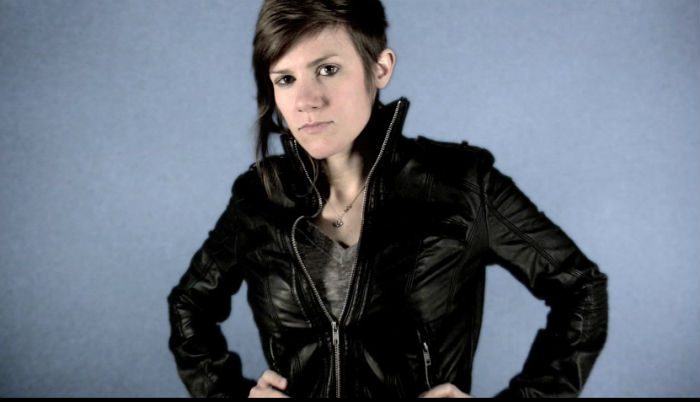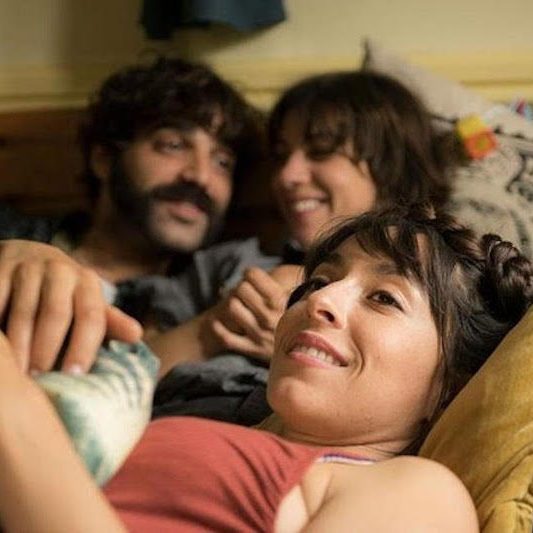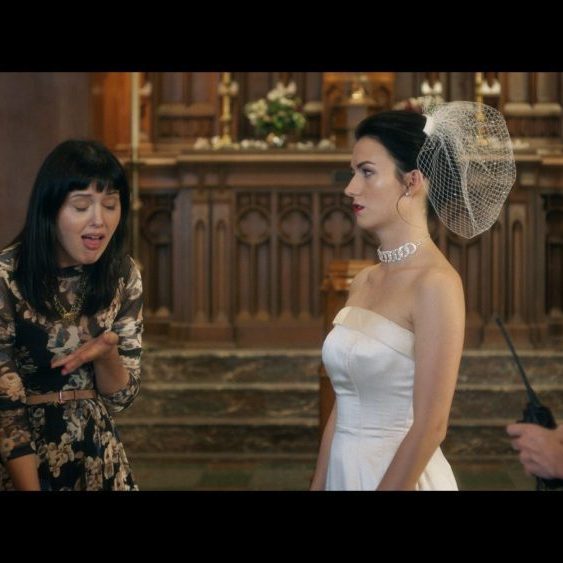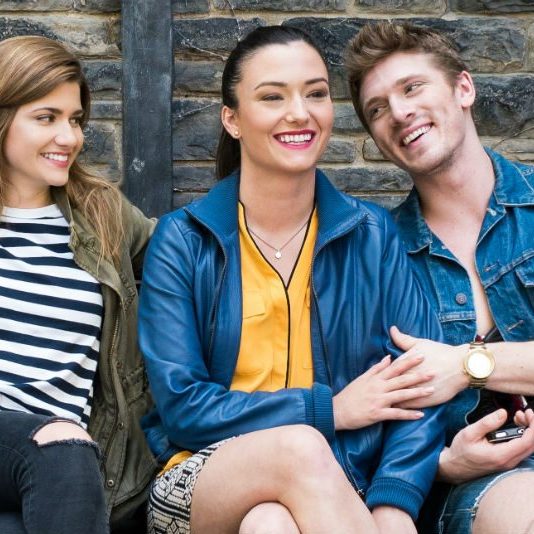
Midwestern comic Cameron Esposito is blazing her way to the top of the comedy heap.
Jay Leno may have only recently declared Cameron Esposito the future of comedy, but her lesbian fan base has known the truth for years. Affable, yet capable of blistering social critique, the thirty-one-year-old comedian honed her material in Chicago comedy clubs and on national tours. Almost exactly one year after moving to Los Angeles, Esposito appeared on Craig Ferguson and Chelsea Lately, displaying her distinctive mix of charisma leavened with Midwestern sincerity. Clearly, the hardworking comedic is earning the national attention she is due.
What separates a comic from that funny friend at a dinner party?
Hours and hours and hours of stage time. Also a desire to be really, really serious about jokes. In my experience, most comics aren’t too funny at parties. Jokes are for the stage; dips are for parties—unless it’s a party of all comics, in which case the jokes will be ceaseless, and you better bring your A-game.
What was the first funny thing you ever said?
When I was a newborn my timing was impeccable. I can’t remember topics, probably like formula and what’s the deal with strollers? But I had GREAT timing.
How do you feel about the term “lesbian comic?”
Stoked on it/neutral about it. It’s just a description of who and what I am. Like also: alternative comic (different than an alternative lifestyle–it’s a standup subset) or former Chicago comic or current L.A. comic or incredible dancer.
Ever worry about getting pigeonholed?
Nah. I work in all kinds of rooms, alongside all different types of comics, all over the country. Just want to do the work and keep evolving and stay the course. I do sometimes worry about pigeons, though—they are so aggressive!
Why did you decide to make the move to L.A.?
There’s no industry in Chicago. It’s a great city to come up in; you can fail and learn and get strong but doesn’t have the sustainable career offerings of Los Angeles. It was purely a practical decision.
You’ve been working as a stand-up for years, but recently you’ve gotten national attention. What would we be surprised to learn about that experience?
I don’t own a television. Not because I’m super fancy or snotty or anything. I just watch stuff on my laptop. So, yes, I’ve been on TV, but I haven’t seen myself on TV. I’m looking forward to that, whenever it happens.
What went through your mind when Jay Leno called you the future of comedy?
Nothing. Not a thing. I was completely in the moment and just digging it. It was after walking back to the green room and seeing the folks there to support me than I realized. They all stared at me with their mouths opened and asked, “Do you realize what just happened?”

You have a podcast, post essays to your website, and write for Vice. How important is it for a comic to multitask?
Right now, so important. And also so useful. Comedy has really been democratized enormously in the last decade—viewers and listeners and readers can choose who they want to follow, not just be fed comedy by TV and film. I am trying to produce as much content as I can—while keeping that content high quality—so that folks who dig me can stay engaged and excited about my comedy.
You have a bit about watching gay male porn. I can’t tell you how many lesbians I’ve heard express an interest in gay male porn. Why do you think that is?
To me, lesbian porn seems to be either geared toward straight men and grosses me out, or really emotionally driven if created by women for women. I like the equality between two men together, the honesty in who the porn is being created for, and the excitement and energy of the scenes. It just works for my taste.
And on a related note, what are your plans for the holidays?
I’ll be in-home Chicago a bit. Maybe in Akron, too, with my fiancé. Midwest is always best.
You’ve said, “If I stop talking about my life and my sexuality, then comedy is just a sea of dude comics miming wieners onstage forever. I’ll represent myself. I’m happy to.” Do you ever feel tired of representing?
Sure. And no. I really don’t know any other experience. I mean, I feel exhausted by trying to get my viewpoint out there. Maybe that’s how all comics feel. I do have to fight to get folks on board with my ideas, but that fight has made me a better comic. I can’t really get too lazy about my jokes—and that’s a good thing.




